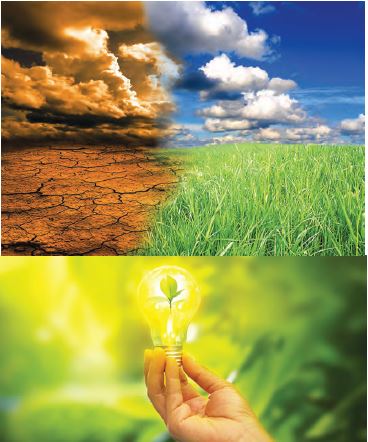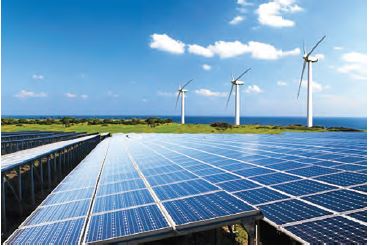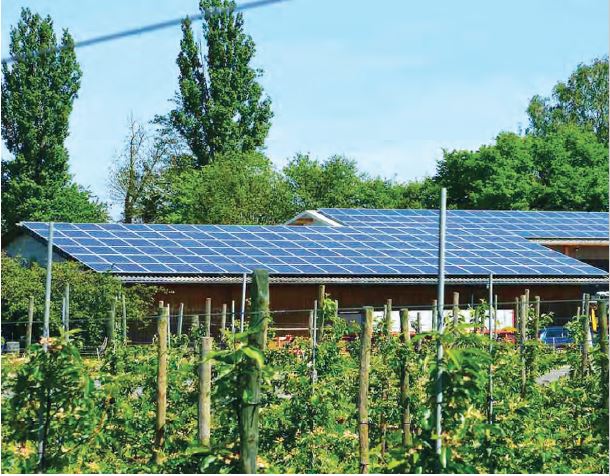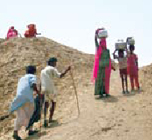 |
|
 |
STORY
DETAILS |
 |
|
| |
| |
 |
| Cover Story
|
 |
 |
| Textiles’ – the word brings up images of beautiful drapes – cotton, silk, chiffon, lace. Whether it is the material draped on the figurine of the lady f... |
|
 |
| |
read more... |
 |
|
 |
Lead Article
Textiles the word brings up images of beautiful drapes cotton, silk, chiffon, lace. Whether it is the material draped on the figurine of the lady from Mohenjadaro, the stylish drapes of Cleopatra, the ball dance gowns of the Victorian Era or the lovely dresses worn by our own queens and princesse...
read more... |
|
 |
| Articles |
 |
 |

|
|
Tapping Sustainable Energy Alternatives
|
|
|
The second lead article, which is also focus article, is written by Shri N Bhadran Nair. Citing a report of the World Health Organisation, the author has advocated for tapping sustainable energy alternatives
|

|

|

|

|
|
Financing Renewables in India
|
|
|
The third article is written by Shri P C Maithani, Adviser, Ministry of New and Renewable Energy. He has focussed on renewable energy resources
|

|

|

|
|
Steps to Achieve India’s Solar Potential
|
|
|
The special article is written by Sumant Sinha, Chairman and Managing Director of ReNew Power. He opines that India must also honour its global commitments on curbing greenhouse gas emissions
|

|

|
|
|
|
|
|
|
|
What India Needs to Do
Urmi A Goswami |
|
 Even as the world Recognizes the threat of Climate change and the Need to contain emissions
Of greenhouse gases, There has been little movement Towards achieving this objective. A key reason for this is that climate Change is marked by first mover’s Disadvantage. There has been no Demonstrable economic gain for Countries that moved to a regime that Adheres to the health of the planet. Given that countries are at different Places on the development curve,
Coupled with unequal access to Finance and technology, a complete Shift in economic trajectory is near Impossible. Even as the world Recognizes the threat of Climate change and the Need to contain emissions
Of greenhouse gases, There has been little movement Towards achieving this objective. A key reason for this is that climate Change is marked by first mover’s Disadvantage. There has been no Demonstrable economic gain for Countries that moved to a regime that Adheres to the health of the planet. Given that countries are at different Places on the development curve,
Coupled with unequal access to Finance and technology, a complete Shift in economic trajectory is near Impossible.
It is the first mover’s disadvantage that could explain why the developed world has sought to increase the web of those who have to shoulder the burden of responsibility of reducing emissions. Clearly not wanting to lose out on its economic advantage, the industrialized nations would like to see advanced developing countries like China and India share the burden.
The United Nations Framework Convention on Climate Change, the Kyoto Protocol and the Bali Action Plan remain the bedrock of climate change negotiations. However, the changing economic realities of some developing countries will mean an attempt to rework the “common
but differentiated responsibility” principle agreed to at the Rio summit of 1992. Being one of the rapidly growing countries and in close partnership with China, which is now the world’s largest net emitter, India will need to rework its climate change strategy to maximize its goals of development and aspirations to be a global player.
|
|
|
|
|
|
|
|
|
|
|
 |

|
Regional Languages
|
 |
|
|
 |
|
Regular
Column |
|
J&K Window : |

|
|
Do you know? : What is Forensic Auditing |
Forensic auditing refers to the auditing with the main aim to employ accounting techniques and methods to gather evidence to investigate the crimes on financial front such as theft, fraud etc.

|
|
|
 |
|
 |
 |